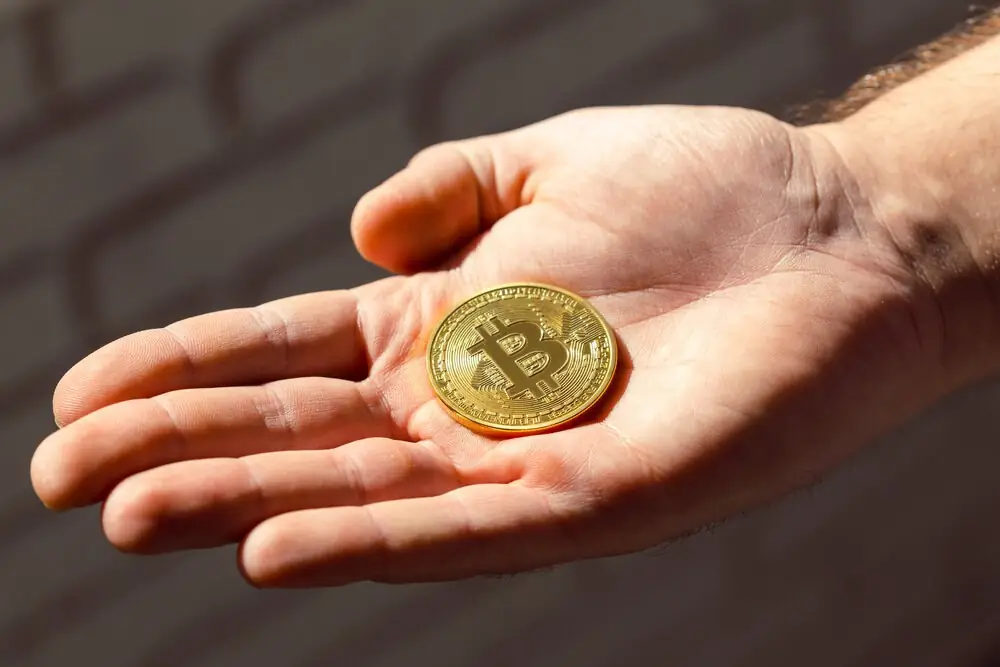Bitcoin, a revolutionary form of digital currency, seeks to revolutionize the traditional financial system by eliminating the reliance on central authorities like banks or governments. Instead, Bitcoin harnesses the power of blockchain technology to facilitate direct peer-to-peer transactions within a decentralized network.
In simple terms, blockchain is a public ledger that records and verifies every transaction made with Bitcoin. Unlike a traditional centralized database, this ledger is distributed over a network of computers, known as nodes, ensuring that no single entity has control over the currency. By leveraging this decentralized structure, Bitcoin enables individuals to transact directly with one another, cutting out the need for intermediaries and reducing associated costs.
To maintain the integrity and security of the Bitcoin network, transactions are authenticated through proof-of-work. It involves cryptocurrency miners verifying the validity of transactions by solving complex mathematical problems. Once a miner solves a problem, they are rewarded with Bitcoins. This consensus mechanism ensures that only legitimate transactions are added to the blockchain.
It was the first cryptocurrency to enter the market and remains the most valuable one to this day. Since its inception, Bitcoin has inspired the creation of a diverse range of digital currencies collectively known as cryptocurrencies.
Bitcoin Origin
While the identity of Satoshi Nakamoto remains unknown to this day, the impact of their creation cannot be overstated. Bitcoin introduced a groundbreaking technology called blockchain, which has since revolutionized how we perceive and transact with money.
A. Blockchain:
At the heart of Bitcoin lies blockchain, a decentralized, transparent, and immutable public ledger. The blockchain serves as the backbone of the entire Bitcoin network, ensuring the integrity and security of transactions. A blockchain is a chronological group of blocks, each carrying a collection of verified transactions.
Unlike traditional financial systems, which rely on intermediaries such as banks to validate transactions, Bitcoin's blockchain allows direct peer-to-peer transactions. Every transaction is recorded on the blockchain, creating a transparent and auditable history of all Bitcoin movements.
B. Decentralization:
One of the critical tenets of Bitcoin is decentralization. Central banks or governments control and regulate traditional currencies, exerting authority over the monetary system. In contrast, Bitcoin operates on a decentralized network of computers, known as nodes, that spread across the globe.
This decentralized nature ensures that no single entity has absolute control over Bitcoin. Each node on the network participates in verifying and validating transactions, contributing to the overall security and robustness of the system. Decentralization also makes Bitcoin resistant to censorship and manipulation, as no single authority can dictate or alter the rules of the network.
C. Peer-to-Peer Electronic Cash System:
What does Bitcoin actually do? Bitcoin was designed as a P2P electronic cash system, providing a secure and efficient means of transacting value without intermediaries. Unlike traditional banking systems, which often involve lengthy processes and fees, Bitcoin enables near-instantaneous transactions at minimal costs.
To ensure the security of these transactions, Bitcoin employs cryptographic algorithms. Every transaction is digitally signed, verifying the authenticity and integrity of the sender's identity. These signatures are mathematically linked to the sender's private key, ensuring that only the rightful owner can initiate and authorize transactions.
Furthermore, Bitcoin transcends geographical boundaries, allowing for borderless transactions. Since the network operates on the Internet, individuals can receive and send Bitcoin anywhere in the world without being restricted by traditional financial systems or foreign exchange limitations.
Innovative features such as multi-signature wallets, which require multiple parties to authorize a transaction, enhance the security and trustworthiness of Bitcoin transactions. This feature is handy for businesses or individuals who require additional layers of verification and approval for large-scale transactions.

Decentralization and Trustless Nature
One of the fundamental and transformative aspects of Bitcoin is its decentralized nature. But what does Bitcoin actually do? Unlike traditional currencies that central banks and governments control, Bitcoin operates on a distributed network of computers and nodes without a single point of control. This decentralized architecture is a cornerstone of Bitcoin's innovation, ensuring that no single entity has undue control or authority over the currency.
A. Decentralization: Redefining Power and Authority
Bitcoin's decentralized design challenges the traditional financial system's centralized control, often leading to censorship, limited access, and potential manipulation. In a decentralized network, power is distributed among participants, reducing the risk of single points of failure and enabling a more resilient and inclusive financial ecosystem.
The Bitcoin network consists of many nodes, each maintaining a copy of the blockchain, the public ledger that records all transactions. These nodes communicate with each other, sharing information and ensuring the consistency and accuracy of the blockchain. No central authority dictates the rules or governs the network, as decisions are made through a consensus mechanism, such as Proof of Work or Stake.
B. Trustless Nature: Removing the Need for Intermediaries
Bitcoin's trustless nature is achieved using cryptographic algorithms, eliminating the need for trust in transactions. Traditionally, financial transactions require trust in intermediaries, such as banks or payment processors, to verify and facilitate transfers. In contrast, Bitcoin's trustless design allows participants to transact directly with each other without relying on a central authority.
Cryptographic algorithms, such as public-private key pairs and digital signatures, are at the core of Bitcoin's trustless nature. Every Bitcoin user has a unique public-private key pair, with the private key as a digital signature for authorizing transactions. When a transaction is initiated, the sender uses their private key to sign the transaction, proving ownership and ensuring the integrity of the transaction. The recipient can then verify the signature using the sender's public key without the need for trust or reliance on a third party.
C. Miners: Safeguarding the Network's Integrity
To maintain the integrity and security of the Bitcoin network, miners play a crucial role. Miners are participants in the network who dedicate computational power to validate and add new transactions to the blockchain. They compete to solve complex mathematical puzzles through mining, which requires significant computational resources and energy.
Through mining, miners contribute to the network's consensus mechanism and prevent double-spending, where a user tries to spend the same Bitcoin more than once. Once a miner successfully solves a puzzle, they puts a new block of transactions to the blockchain, which is then propagated across the network.
The decentralized nature of mining ensures that no single entity can control the network or alter the transaction history. The consensus mechanism guarantees that all participants agree on the validity of transactions, creating a trustless environment where the integrity of the network is upheld collectively.
Security and Pseudonymity
Bitcoin's design incorporates robust cryptographic techniques to ensure the security and integrity of transactions. Through the utilization of encryption and the transparency of the blockchain, Bitcoin establishes a trustless environment where users can have confidence in the validity of transactions.
Transaction Security:
Bitcoin transactions are secured through cryptographic algorithms, which protect the integrity and confidentiality of data. When a transaction is initiated, it is encrypted using complex mathematical computations. This encryption process ensures that the transaction data remains private and tamper-proof during transmission.
Once the transaction is encrypted, it is added to a block in the blockchain, a distributed and immutable public ledger. A network of nodes maintains the blockchain, each verifying and validating transactions. The transparency of the blockchain allows anyone to access and verify the transactions, promoting trust and accountability within the system.
The decentralized nature of the blockchain also enhances security. As the blockchain is distributed across multiple nodes, it becomes challenging for hackers or malicious actors to manipulate the transaction history. To alter a transaction, an attacker would need to control the majority of the network's computational power, a feat that becomes increasingly challenging as the network grows.
The Pseudonymous Nature of Bitcoin Transactions
Transactions in Bitcoin are pseudonymous rather than fully anonymous. With Bitcoin, your transactions are identified by unique wallet addresses rather than revealing personal details. This pseudonymous nature allows you to engage in financial activities with increased anonymity, safeguarding your privacy in an increasingly digital world.
While the blockchain, the public ledger of Bitcoin transactions, records all transaction information, the absence of personal identifiers ensures that your real-world identity remains concealed. This means you can conduct transactions without exposing sensitive information, offering security against potential risks and threats.
Store of Value and Digital Gold
Bitcoin's unique properties, including its limited supply and scarcity, have positioned it as a potential store of value comparable to digital gold. With a total supply of 21 million coins, Bitcoin is designed to be deflationary, meaning its inflation rate decreases over time. This characteristic sets it apart from traditional fiat currencies, which are subject to inflationary pressures from government monetary policies.
The limited supply of Bitcoin is governed by its underlying protocol, which ensures that new coins are gradually introduced into circulation through mining. This predetermined issuance schedule and the diminishing rate at which new coins are generated make Bitcoin increasingly scarce. As a result, Bitcoin's scarcity gives it the potential to retain and increase in value over the long term, similar to how gold has historically been regarded as a store of value.
The concept of Bitcoin as digital gold has gained traction among investors seeking an alternative to traditional financial systems and a hedge against economic uncertainty. The decentralized nature of Bitcoin, free from government control or manipulation, is seen as an appealing characteristic that adds to its store of value proposition. Furthermore, the transparency and immutability of the blockchain provide a verifiable record of every transaction, enhancing trust and reducing the risk of fraud or manipulation.
Bitcoin's store of value proposition is particularly attractive during economic instability or inflationary pressures. The global economic landscape has witnessed events such as the financial crisis 2008 and more recent economic challenges caused by the COVID-19 pandemic, which have eroded confidence in traditional financial systems and prompted investors to explore alternative assets. Bitcoin's digital nature, portability, and growth potential have made it an appealing option for individuals and institutions seeking to diversify their portfolios and protect their wealth.
Financial Inclusion and Cross-Border Transactions
What does Bitcoin actually do? With its decentralized and borderless nature, Bitcoin holds great promise in addressing financial inclusion challenges and facilitating cross-border transactions. By leveraging the power of technology, Bitcoin can provide financial services to the underbanked and unbanked populations worldwide while also providing a more efficient and cost-effective solution for cross-border transactions.
Financial Inclusion:
A significant portion of the global population needs access to basic financial services. Many individuals in underserved regions are excluded from the traditional banking system due to limited physical infrastructure, lack of documentation, or prohibitive costs. This exclusion prevents them from participating fully in the global economy, saving securely, or accessing credit to start or expand businesses.
Bitcoin can transform this scenario by offering financial services to anyone with a smartphone and an internet connection. Bitcoin wallets can be easily created and accessed, enabling individuals in underserved regions to store, send, and receive money without traditional banking intermediaries. This accessibility allows them to participate in the global financial system, make transactions, and engage in economic activities that were previously out of reach.
In regions where traditional financial infrastructure is lacking, Bitcoin can serve as a viable alternative. Its decentralized nature eliminates the need for physical banking branches, and transactions can be conducted directly between individuals without relying on intermediaries. This reduces costs and barriers to entry, making financial services more accessible to those who need them the most.
Cross-Border Transactions:
Cross-border transactions often involve lengthy processes, high fees, and currency exchange complexities. These obstacles can disproportionately affect individuals and businesses in developing countries, hindering economic growth and limiting opportunities for global trade.
Bitcoin offers a transformative solution for cross-border transactions. The borderless nature of the cryptocurrency allows for near-instantaneous transfers of value across geographic boundaries. Traditional intermediaries, such as banks or money transfer services, are bypassed, eliminating the associated delays and costs. Before engaging in any transactions, it is crucial to have a secure wallet. They become vulnerable to attacks and malicious actors without secure storage for crypto assets. Our wallet leverages private key encryption, PINs, and biometric authentication to enhance security. Additionally, we utilize offline storage as a crucial security measure against theft or loss. Bitcoin is distributed geographically and safeguarded in safe deposit boxes and vaults worldwide.
Bitcoin transactions are typically conducted at lower fees than traditional remittance services, making them a more cost-effective option, particularly for smaller transactions. This cost efficiency can significantly impact the remittance market, where high fees often eat into the funds being sent to recipients in developing countries.
Furthermore, the transparency and immutability of the Bitcoin blockchain ensure the integrity of cross-border transactions. The public nature of the blockchain allows anyone to verify the transaction history, promoting trust and reducing the risk of fraud.
Conclusion
What does Bitcoin actually do? Bitcoin has emerged as a groundbreaking innovation that challenges the existing financial landscape. Its decentralized nature, trustless system, and secure transactions have garnered attention from individuals, institutional investors, and governments alike. As the world becomes increasingly digital, Bitcoin's potential as a transformative force in finance continues to grow.
While Bitcoin has encountered its fair share of criticism, ranging from its volatility to concerns over energy consumption, it remains a disruptive technology capable of restructuring the global financial system. As it continues to evolve, it is crucial to understand the fundamental principles of Bitcoin, its underlying technology, and the opportunities and challenges it presents.
As with any emerging technology, it is essential to exercise caution and remain informed about the risks and uncertainties associated with Bitcoin. Nevertheless, the decentralized and borderless nature of Bitcoin offers a glimpse into a future where individuals have greater control over their finances and where financial inclusion is a reality for all.







